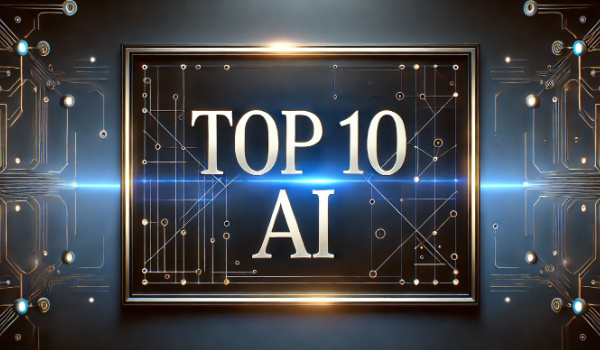1. OpenAI Unveils Creative Writing AI Model
OpenAI has introduced a new AI model proficient in creative writing, particularly in the metafiction genre. CEO Sam Altman shared a story generated by the model, demonstrating its advanced capabilities. However, this development has sparked criticism from the creative industry, with concerns over copyright infringement. Critics argue that training the AI on copyrighted works without permission raises fairness issues, emphasizing that creators deserve compensation. The UK’s “Make It Fair” campaign opposes government plans allowing AI companies to use copyrighted works without explicit consent unless the owner opts out. Industry leaders stress the importance of upholding current copyright laws to ensure fair use and proper licensing for AI development. Despite the AI model’s advancements, some experts view its outputs as derivative of human creativity.
2. Alibaba Enhances AI Assistant ‘Quark’
Alibaba has updated its AI assistant, Quark, with advanced reasoning capabilities, enabling users to perform complex tasks such as academic research, medical diagnostics, and travel planning. This upgrade positions Alibaba competitively in China’s AI market, especially as it awaits approval to integrate similar AI technology into iPhones in China. The new Quark began with a pilot and will be gradually made available to all users. This development is timely as Apple’s iPhone shipments in China fell by 17% in 2024. Meanwhile, a Siri upgrade outside China is delayed, affecting sales growth forecasts. Chinese AI startups like DeepSeek and Manus AI have also entered the scene, increasing competition. Alibaba plans substantial investments in cloud computing and AI over the next three years, indicating significant market potential.
3. Palantir Hosts AIPCon Amid AI Stock Volatility
Palantir Technologies hosted its sixth artificial intelligence conference, AIPCon, amid a downturn in AI stocks on Wall Street. The company’s stock climbed 4.6% premarket as analysts noted the potential addition of new clients such as Walgreens, Delta Air Lines, and Heineken. At its fourth-quarter earnings call, Palantir indicated a $67 million engagement with one of America’s largest pharmacies, though it’s unclear if it’s Walgreens or CVS. Palantir aims to expand its U.S. commercial market through generative AI, having launched its “Artificial Intelligence Platform” in early 2023. Despite recent market volatility, Palantir’s stock has gained 3% in 2025, though it’s down nearly 35% from its all-time high in February. Analysts emphasize the need for Palantir to demonstrate revenue growth from its AI product deployments.
4. AI Innovations at Mobile World Congress
The Mobile World Congress in Barcelona showcased innovative AI applications from Chinese companies. China Unicom presented a photo transformation tool, while iFlytek demonstrated a short movie generator. The drone and humanoid robot markets are burgeoning, particularly in Asia, with Korea’s drone market predicted to grow significantly. Humanoid robots are viewed as the next big tech wave but face safety challenges. Wealthy Chinese investors are covertly investing in Elon Musk’s companies to avoid regulatory scrutiny. NTT is advancing fully optical communication to reduce data centers’ power usage, despite technical hurdles. New AI entity Manus AI claims superior technology, attracting attention despite some skepticism. Various partnerships and tech advancements are brewing globally, highlighting the dynamic nature of the tech landscape. ft.com
5. UK Announces Major AI-Driven Public Sector Reforms
Labour leader Keir Starmer announced the abolition of NHS England, bringing management of the NHS back under central government to eliminate duplication and reduce bureaucracy. This decision aims to save hundreds of millions of pounds annually by streamlining administrative functions. Starmer criticized the “overcautious, flabby state,” advocating for an efficient state serving the public effectively without ideological concerns over its size. He called for AI utilization to replace tasks that it can perform better than humans. Former Tory health secretary Jeremy Hunt commended Starmer’s boldness, while Unison criticized the announcement’s handling as “shambolic.” In related news, anticipated severe cuts to sickness and disability benefits provoked criticism from former Labour chancellor Ed Balls. NHS England figures showed an increase in cancer diagnosis delays and a significant waiting list for routine treatments despite a slight decrease for the fifth consecutive month.
6. xAI Releases Grok-3 AI Model
Elon Musk’s AI venture, xAI, released its latest flagship AI model, Grok-3, trained with ten times more computing power than its predecessor. Utilizing the massive data center Colossus, containing around 200,000 GPUs, Grok-3 was trained on an expanded dataset that includes legal filings.
7. OpenAI’s Strategic Policy Shift Under New Administration
Chris Lehane, OpenAI’s Chief Global Affairs Officer, discussed the company’s proactive policy approach under the Trump administration. OpenAI now emphasizes policies that support AI growth to maintain U.S. competitiveness against China, marking a shift from previous calls for stringent regulation.
8. France and India Co-Host AI Action Summit
The AI Action Summit in Paris, co-chaired by France and India, gathered over 1,000 participants from more than 100 countries. Discussions focused on maximizing AI’s economic opportunities and addressing its environmental impact. The summit launched initiatives like Current AI, a $400 million foundation supporting public-interest AI, and the Coalition for Sustainable AI, aiming to promote ethical and eco-friendly AI development.
9. China’s Manus AI Agent Demonstrates Full Autonomy
Chinese startup Monica unveiled Manus, an autonomous AI agent capable of independently executing complex tasks without human intervention. Manus can analyze data, plan dynamically, and make decisions across various domains, marking a significant step toward artificial general intelligence.
10. Google’s DeepMind Introduces Gemini Robotics AI Model
Google’s DeepMind launched Gemini Robotics, an advanced vision-language-action model based on the Gemini 2.0 large language model. Tailored for robotics applications, Gemini Robotics can understand new situations and perform physical tasks without prior training, advancing the integration of AI in robotics.





